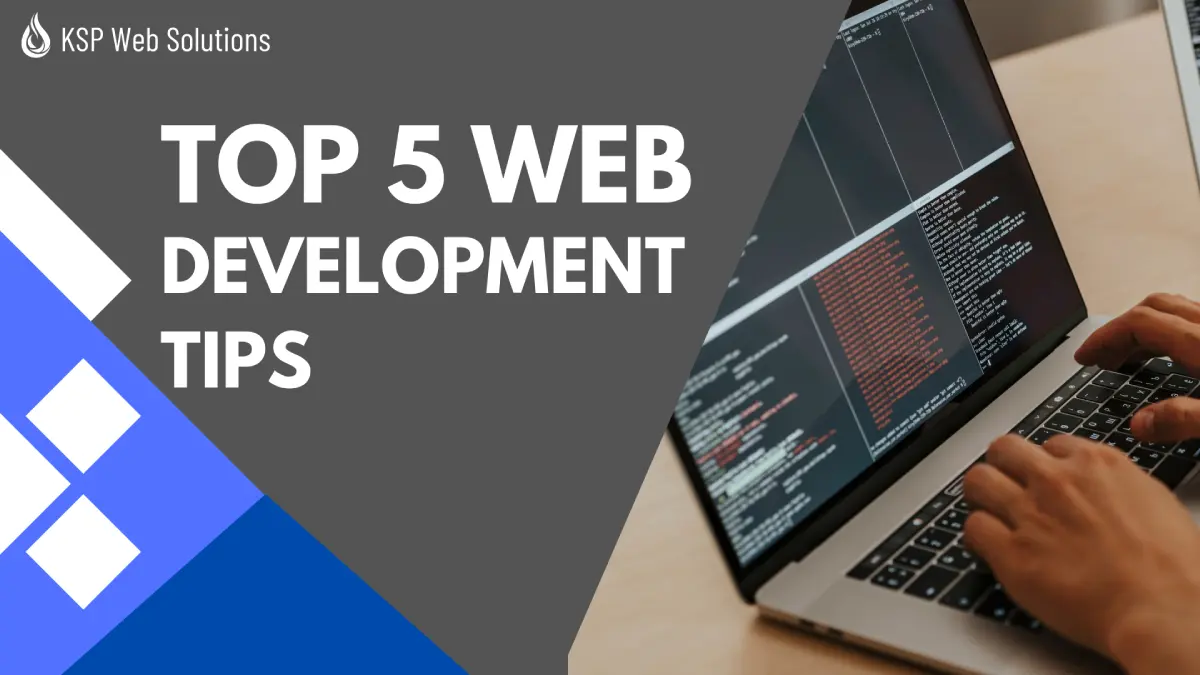A website’s speed and SEO- benevolence are two of the most pivotal factors that determine its success. In moment’s digital geography, druggies anticipate websites to load incontinently, and search machines prioritize websites that offer a flawless stoner experience. A slow website not only frustrates callers but also leads to lower hunt machine rankings and dropped business. also, if your website is n’t optimized for SEO, it wo n’t be suitable to attract organic callers, no matter how good your content or services are.
erecting a fast and SEO-friendly website requires a strategic approach to web development. Developers and business possessors need to concentrate on optimizing performance, icing mobile responsiveness, enforcing SEO stylish practices, enhancing security, and reducing garçon response times. By doing so, websites can achieve better rankings, attract further callers, and eventually ameliorate transformations. This composition explores five essential web development tips that will help you make a high- performing website that ranks well in hunt machine results.
1. Optimize Website Performance
Why Website Speed Matters?
Website speed directly impacts user experience, SEO rankings, and conversion rates. Google considers page speed as a ranking factor, making it essential for developers to focus on performance optimization.
Ways to Optimize Performance
- Minimize HTTP Requests
- Reduce the number of scripts, images, and CSS files.
- Combine multiple CSS and JavaScript files into one.
- Use a Content Delivery Network (CDN)
- A CDN distributes website data across multiple servers worldwide.
- Helps reduce load times for users from different locations.
- Optimize Images and Videos
- Compress images using tools like TinyPNG and ImageOptim.
- Convert images to modern formats like WebP.
- Use lazy loading to defer off-screen images.
- Enable Browser Caching
- Store static resources on users’ browsers to load pages faster.
- Use caching plugins like WP Rocket for WordPress.
follow these steps, you can significantly Fast your website’s loading speed and performance.
2. Mobile-First Development
Why Mobile Optimization is Important?
With over 60% of internet traffic coming from mobile devices, having a mobile-friendly website is non-negotiable. Google follows mobile-first indexing, meaning your website’s mobile version determines its ranking.
How to Implement Mobile-First Development?
- Use Responsive Design Frameworks
- Bootstrap and Tailwind CSS make mobile-friendly development easier.
- Flexible grid layouts and fluid images adjust for different screen sizes.
- Optimize Touch Interactions
- Ensure buttons and links are large enough to tap.
- Avoid pop-ups that hinder user experience on small screens.
- Improve Mobile Loading Speed
- Enable AMP (Accelerated Mobile Pages) for instant loading.
- Minify CSS and JavaScript to reduce mobile load time.
A well-optimized mobile experience enhances usability, improves rankings, and drives more traffic.
3. SEO Best Practices in Development
Why SEO is Crucial?
A well-structured website with proper SEO implementation helps search engines crawl, index, and rank content efficiently.
Best SEO Practices in Web Development
- Implement Clean URL Structures
- Avoid long and complex URLs.
- Use hyphens instead of underscores (e.g., example.com/web-development-tips).
- Use Schema Markup
- Helps search engines understand your content better.
- Can improve rich snippets and click-through rates (CTR).
- Improve Metadata and Header Tags
- Use H1 for main titles, H2, and H3 for subheadings.
- Optimize title tags and meta descriptions with relevant keywords.
By following these SEO strategies, your website will rank higher and attract more organic traffic.
4. Improve Website Security & Accessibility
Why Security and Accessibility Matter?
A secure and accessible website enhances trust, credibility, and user experience while protecting against cyber threats.
Security Best Practices
- Implement HTTPS and SSL
- HTTPS secures data transfer, preventing attacks.
- Google prioritizes HTTPS websites in rankings.
- Ensure WCAG Compliance
- Make websites accessible for users with disabilities.
- Add alt text to images and provide keyboard navigation.
- Optimize Website Structure for Accessibility
- Use semantic HTML for better readability.
- Ensure sufficient contrast between text and background colors.
A secure and accessible website improves user trust, SEO, and overall experience.
5. Reduce Server Response Time
Why Server Response Time is Important?
A slow server can cause delays in loading your website, negatively impacting user experience and rankings.
How to Reduce Server Response Time?
- Use a Faster Hosting Provider
- Choose cloud-based hosting like AWS, SiteGround, or Cloudways.
- Consider managed WordPress hosting for better performance.
- Optimize Database Queries
- Reduce unnecessary database requests.
- Use caching to store frequently accessed data.
- Enable Caching Techniques
- Use server-side caching to reduce processing time.
- Implement object caching for database efficiency.
Reducing server response time enhances speed, performance, and overall SEO ranking.
Conclusion
By implementing these five web development tips, you can significantly improve your website’s speed, SEO, and user experience. A fast, mobile-friendly, and secure website not only ranks higher on search engines but also retains visitors and converts them into customers.Start optimizing your website today to increase traffic, improve engagement, and boost conversions!
Check out Ksp Web Solutions for expert web development services
Google PageSpeed Insights – Test your website’s speed and performance.







